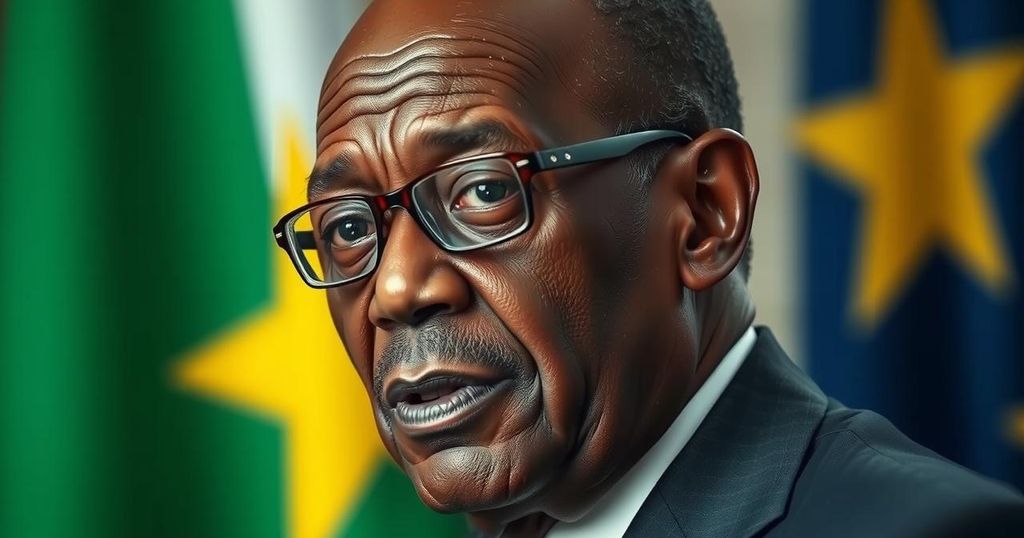Macky Sall Attempts Political Comeback Amidst Senegal’s Turbulent Landscape
Macky Sall, former President of Senegal, is attempting a political comeback by leading a new opposition coalition from Morocco in the upcoming snap parliamentary elections. His departure from power and delayed election has led to tensions with Prime Minister Ousmane Sonko, who has threatened legal action over financial mismanagement. Sall’s reemergence revitalizes debates about his past governance and potential future impact on Senegal’s political stability.
DAKAR: Macky Sall, the former President of Senegal, is making a significant political return by leading a newly formed opposition coalition in the upcoming snap parliamentary elections. Sall, who left office in April after a 12-year tenure, had previously drawn considerable criticism for delaying the presidential election, which led to widespread unrest in the country. Currently residing in Morocco, his political comeback raises questions about his motivations and the potential implications for Senegal’s political landscape.
Sall’s predecessor, Prime Minister Ousmane Sonko, has indicated that former administration members might face legal repercussions over claims of disastrous public finances left by Sall’s government. The political climate remains tense, with Sonko alleging that Sall’s administration engaged in financial discrepancies detrimental to international partnerships. Political analysts interpret Sall’s return as an effort to maintain influence amid threats of accountability.
Despite a complicated legacy characterized by political violence, Sall maintains respect on an international level. His last months in office culminated in severe political strife and unrest, largely attributed to his decision to postpone elections, leading to the ascendance of his replacement, Bassirou Diomaye Faye, who suffered a significant defeat to Sonko’s associate.
As Sall campaigns for his coalition, he has attempted to justify his political re-engagement by stressing the need to safeguard his accomplishments. In contrast, government representatives have criticized his involvement, citing years of turmoil attributed to his leadership. Currently, he communicates with supporters via phone from abroad, while Sonko energetically promises economic reforms to audiences throughout Senegal.
Should Sall decide to return to Senegal, government assurances have been made regarding his safety, although legal challenges could pose significant obstacles. The landscape remains fraught with political tension, and many believe that the public may not readily forgive Sall’s past actions. Political analysts suggest a possible resurgence of unrest should he choose to return during this volatile period.
The political dynamics in Senegal have been tumultuous, particularly following the exit of former President Macky Sall after a contentious tenure. His administration’s decisions, particularly the postponement of elections and accusations related to mismanagement of public funds, have fueled unrest and criticism. With the transition of power to Prime Minister Ousmane Sonko, who was a rival during Sall’s presidency, the stakes are high as Senegal navigates this snap parliamentary election. Sall’s reemergence from abroad as a political figure raises critical questions about future governance and public sentiment towards his legacy.
Macky Sall’s return to the political scene in Senegal amidst rising tensions and challenges presents a complex scenario for the country’s democratic process. His justification for re-engagement, alongside the accusations against his previous administration, reflects deep-rooted challenges within Senegal’s political landscape. As the snap parliamentary elections approach, the ramifications of his actions and the public’s response will significantly influence the future trajectory of Senegal’s governance and societal stability.
Original Source: www.arabnews.com




Post Comment